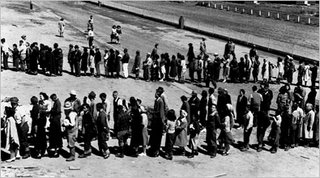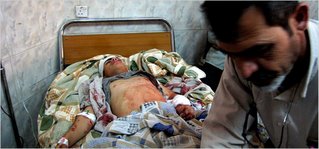Muslims the new Japanese?

In New York, a woman named Holly Yasui has decided to stand up for a group of Muslims that were unjustly arrested simply because of their ethnicity. When they filed for their rights, the judges refused to listen to them. Ms. Yasui said that it seems that the I.N.S. is searching people simply based on their race or ethnic group. She feels this is unfair and wants to prevent atrocities from occurring. She is a descendant of Japanese immigrants that were also captured because of their nationality. She does not want this to repeat itself and hopes to have justice done for these people. One of the judges stated that “the executive is free to single out ‘nationals of a particular country.’ ” He claimed that even though it was harsh that they were looking to people of Muslim background because of such little knowledge of the jijackers on September 11th, he said it was “so irrational or outrageous as to warrant judicial intrusion into an area in which courts have little experience and less expertise.”
During the period after World War II, many Japanese were detained because of suspicion that they might have connections with the Japanese government. However, not only were Japanese immigrants and their descendants were not the only ones imprisoned, but also Italian-Americans, German Americans and other European Americans were unfairly imprisoned or relocated by the United States government. They were stripped of any personal belongings or travel rights they possessed.



